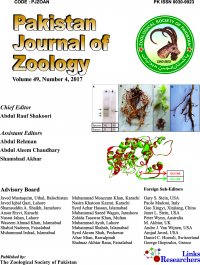Inhibition of Oxidative Stress and Inflammation by Fisetin Ameliorates Heat Stress-Induced Intestinal Injury in Rats
Inhibition of Oxidative Stress and Inflammation by Fisetin Ameliorates Heat Stress-Induced Intestinal Injury in Rats
Kang Cheng1*, Zhihua Song2, Jingyi Niu1, Jin Huang1, Laiting Liu1, Jinrong Wang1 and Yong Zhang1*
ABSTRACT
Intestinal injury and dysfunctions play an important role in the pathophysiology of heat stress. The objective of this study was to determine whether fisetin could ameliorate heat stress-induced intestinal oxidative stress and inflammation, and explore the possible mechanisms at transcriptional levels. Twenty-four male Sprague-Dawley rats aged 8 weeks were randomized to 3 groups, namely, control, heat stress, and heat stress + fisetin (HS-FIS). The experiment lasted for 3 days with daily 1.5 h of heat treatment (40°C) for the heat stress and HS-FIS groups. Rats of the HS-FIS group were orally given 100 mg fisetin /kg body weight/day before the heat treatment. The results showed that fisetin restored the heat stress-induced jejunum morphological damage and increased intestinal permeability, which may be attributed to the improved redox status, the decreased myeloperoxidase activity, the suppressed toll-like receptor 4 signaling pathway mediated expression of pro-inflammatory cytokine tumor necrosis factor alpha at translational and transcriptional level, and the increased gene expression of interleukin 10 in the jejunum. In conclusion, fisetin alleviated the intestinal injury in rats caused by heat stress through inhibiting of oxidative stress and inflammation. This may offer a useful nutritional strategy for improving the health status of individuals exposed to heat stress.
To share on other social networks, click on any share button. What are these?










